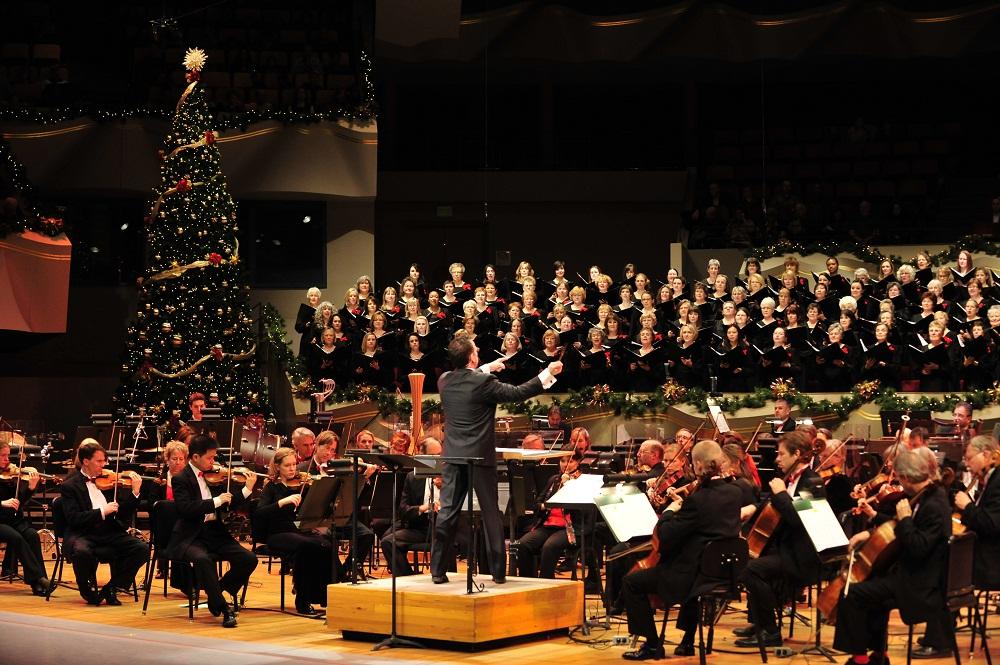
Colorado Public Radio and the Colorado Symphony have ended a 15-year partnership, putting an end to all concert broadcasts for the remainder of the season.
The separation comes after disagreements over a proposal sent last week from the symphony to increase its control over the Symphony-related content on the radio.
Colorado Symphony CEO Jerry Kern said the existing agreement was outdated and he wanted more bilateral terms.
“CPR wasn’t even willing to consider a real schedule for promoting the concerts and the symphony in return for the free content,” he said.
CPR declined the proposal and the symphony decided to end the programming partnership and its underwriting contributions to CPR as of Nov. 30.
The symphony reports paying for at least $50,000 in underwriting a year recently and also asked for subsidies in exchange for the exclusive rights to broadcast its concerts.
CPR’s senior vice president of programming Sean Nethery said underwriting agreements have no bearing on programming efforts. The station will continue to cover the symphony as part of the decision to preserve its editorial separation between programming and fundraising.
Stations often partner with regional orchestras
For many public radio stations providing classical music, partnerships with their area orchestras are a long-standing tradition.
The relationship between Minnesota Public Radio and the Minnesota Orchestra spans more than a decade. "It's a very positive working relationship," MPR managing director of classical programming Brian Newhouse said.
Gwen Pappas, director of public relations at the Minnesota Orchestra, said the institution works closely with the station on a weekly basis to determine potential interviews and collaborate further.
"A couple of years ago, MPR came to us and said it's great to interview soloists in the broadcast booth and talk about what they're doing, but what would be even more interesting is if we could convince them to do these interviews on stage with their instruments at hand," Pappas said.
Jenny Northern, who manages WCLV in Cleveland, Ohio, said the station doesn't pay the Cleveland Orchestra for the concerts featured in radio broadcasts. But she believes the accessibility and increased visibility provided by the radio for the orchestra is important.
"People can understand just by listening to the broadcast what a gem this orchestra is," Northern said. "And then people can make their own decisions as to whether or not they want to support the orchestra."
Likewise, the Cleveland Orchestra sees their collaboration as "part public service, part public awareness," explains general manager Jennifer Barlament.
"We do a fair amount of underwriting on the station because there's good alignment between their audience and our audience," she said. "The two organizations are very very intertwined and we work together quite a bit."
In New York City, the relationship between orchestra and radio "used to be a kind of a one-directional," WQXR general manager Graham Parker said. But now, the station talks "more strategically" about "how we can use this content more creatively."
"Together, if we plan [projects] appropriately, I think it's a 1 + 1 = 3," Parker said. "I think the benefits are much bigger on both sides when you collaborate on these projects because we might have skill sets and ideas and experiences they might not be aware of."
In turn, New York Philharmonic executive director Matthew VanBesien tells CPR that the organization tries to give rights to classical station WQXR, so the station can use content like artist interviews however it sees fit.
"It's about recognizing that we each have our own separate set of objectives," he said. "I think that the key is when to find that there's alignment in those objectives and that's when it gets exciting."
CPR's Nethery said the bottom line for the station was that the Colorado Symphony was making requests that would have let an outside organization influence editorial and promotional content.
"Our integrity depends on our ability to have editorial independence," he said.









